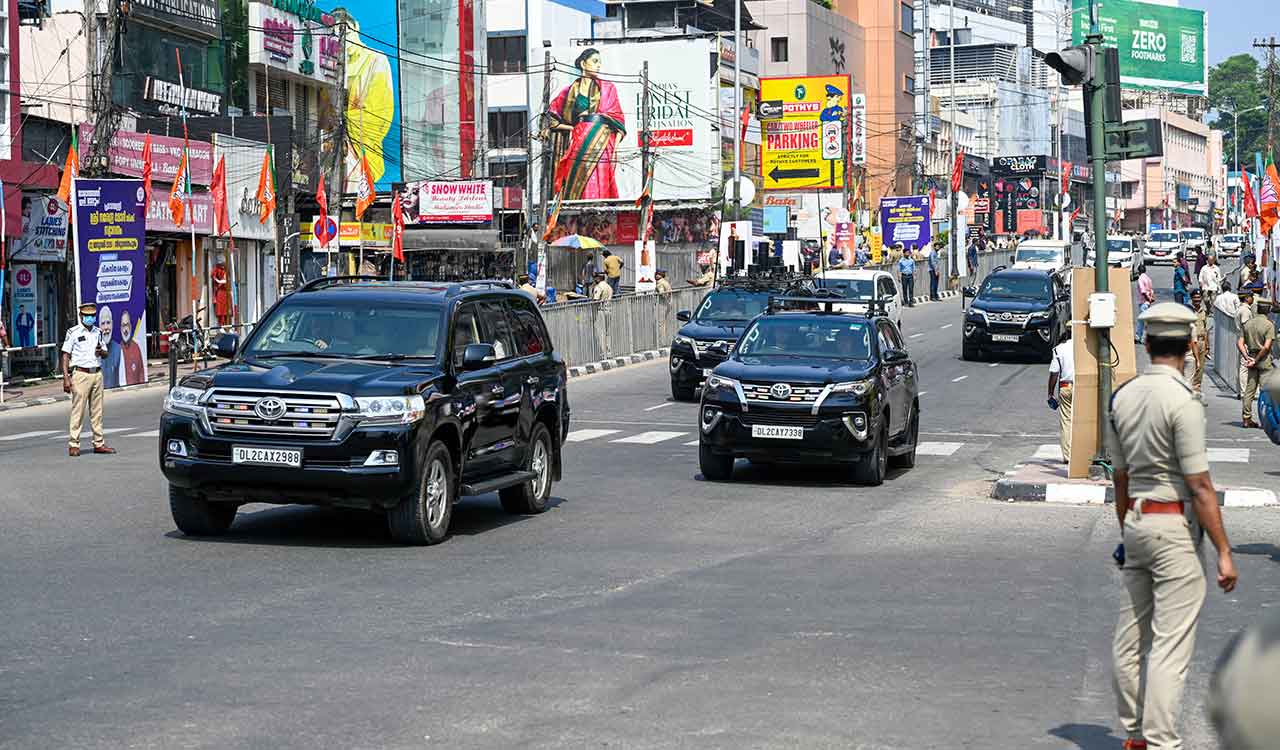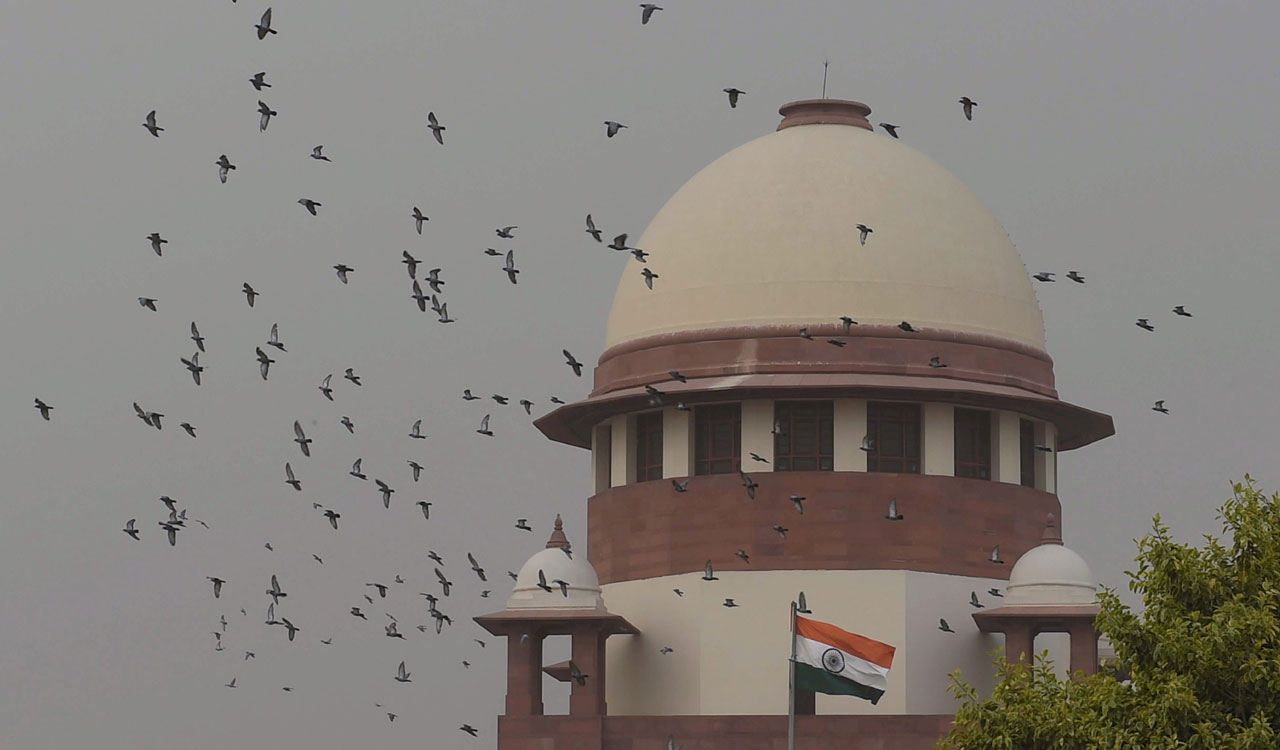Prime Minister Narendra Modi arrived in Kerala to launch development projects, flag off new train services and address a BJP-NDA rally. His visit comes after the BJP’s civic poll breakthrough in Thiruvananthapuram, with the party planning a grand road show
Published Date – 23 January 2026, 11:19 AM

Thiruvananthapuram: Prime Minister Narendra Modi arrived in Kerala on Friday morning to launch various developmental projects and flag off new train services in the poll-bound state, with the BJP planning a grand welcome, including a massive road show, for him.
The PM landed at the airport here at around 10.25 am, airport sources said.
He was received by Governor Rajendra Vishwanath Arlekar, Chief Minister Pinarayi Vijayan and other dignitaries.
This is Modi’s first visit to the state after the BJP wrested control of the Thiruvananthapuram Corporation from the LDF, in the recent civic polls, which had been ruling the local body for 45 years.
The PM put up a post on social media platform ‘X’ regarding his visit and his programmes during the day in Kerala.
“Looking forward to being among my sisters and brothers of Thiruvananthapuram today. Various development works will be launched from this great city. This includes: Launch of the PM SVANidhi Credit Card and disbursal of PM SVANidhi loans to 1 lakh beneficiaries.
“Flagging off of three Amrit Bharat Express trains, which will boost Kerala’s connectivity. Laying the foundation stone for the CSIR-NIIST Innovation, Technology and Entrepreneurship Hub in Thiruvananthapuram,” he said in the ‘X’ post.
In another ‘X’ post, the PM said he was looking forward to addressing a BJP-NDA public meeting in Thiruvananthapuram.
“This city scripted history by blessing us in the recently concluded corporation elections. It’s clear Kerala is looking to break free from the fixed match of LDF and UDF,” he said.

